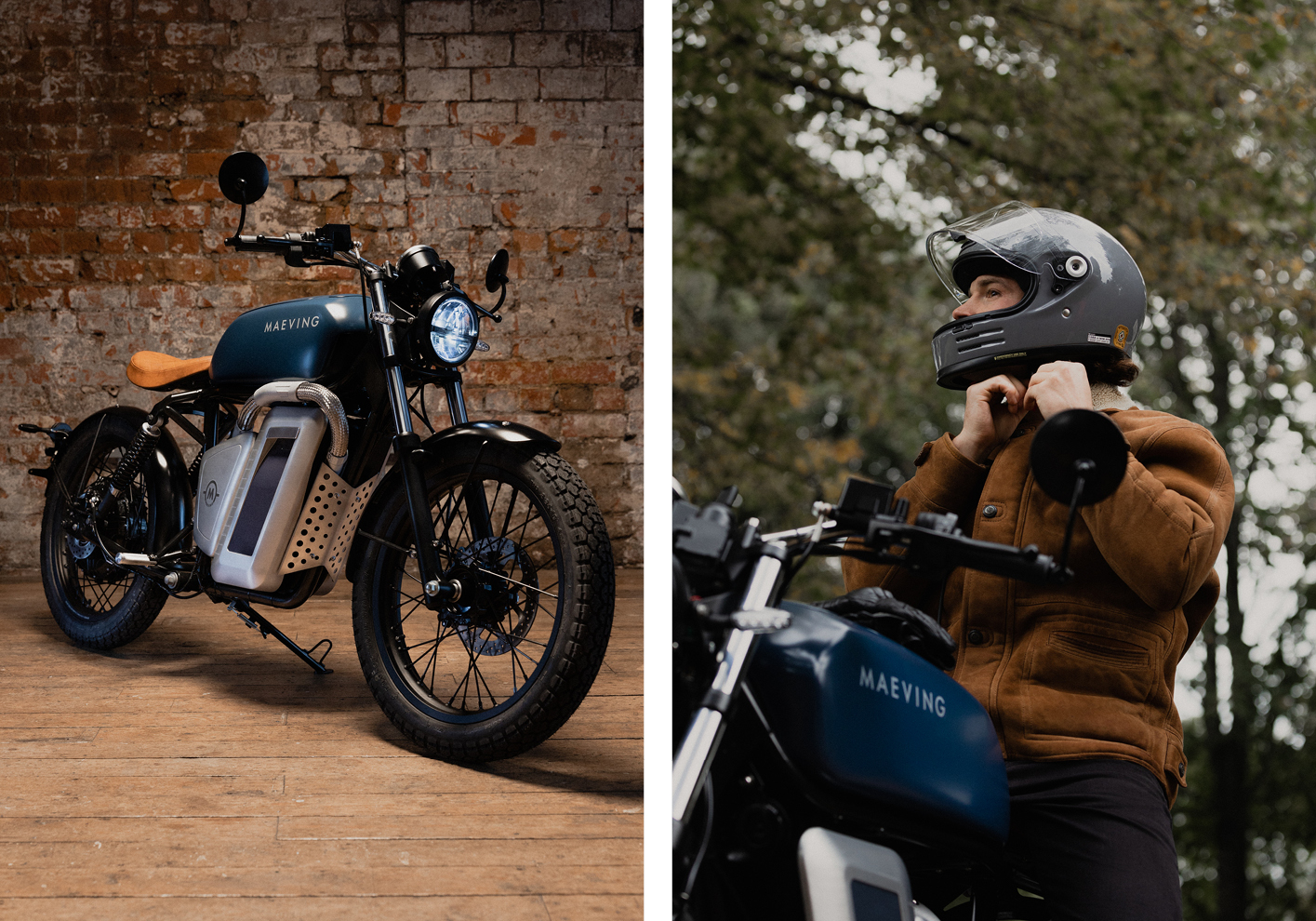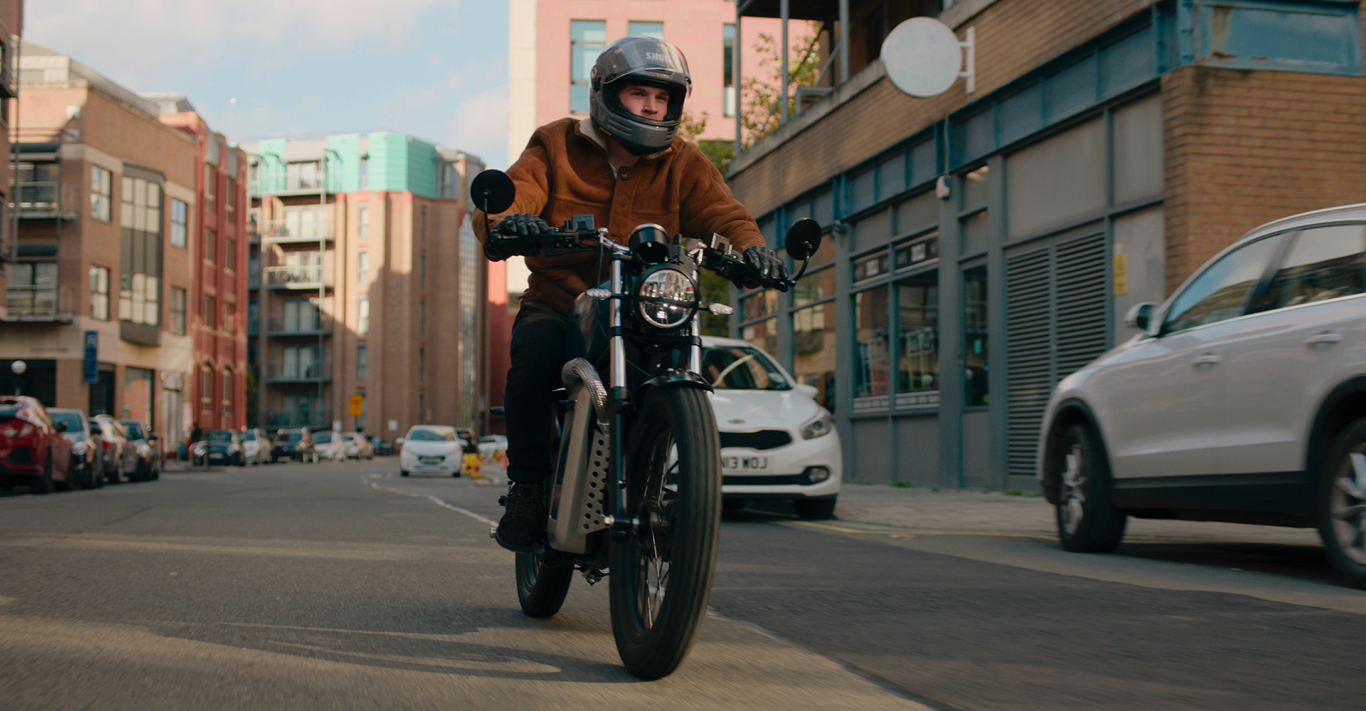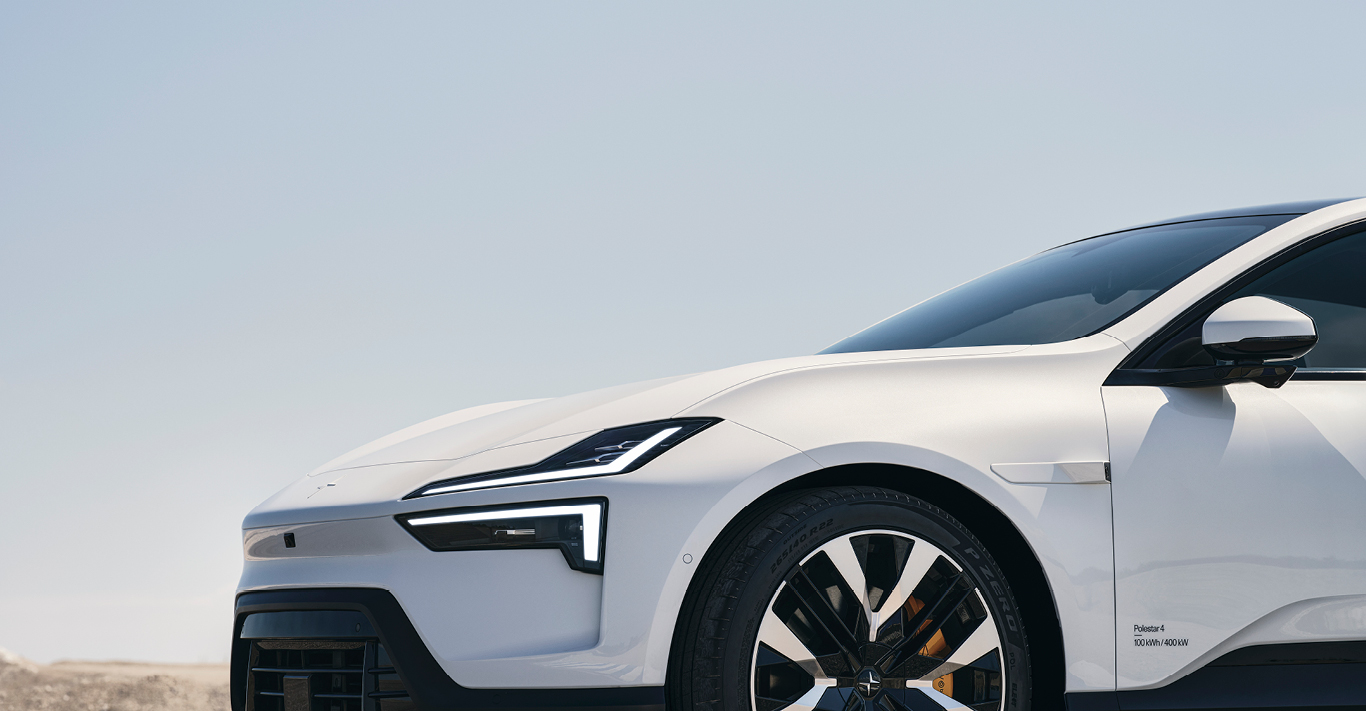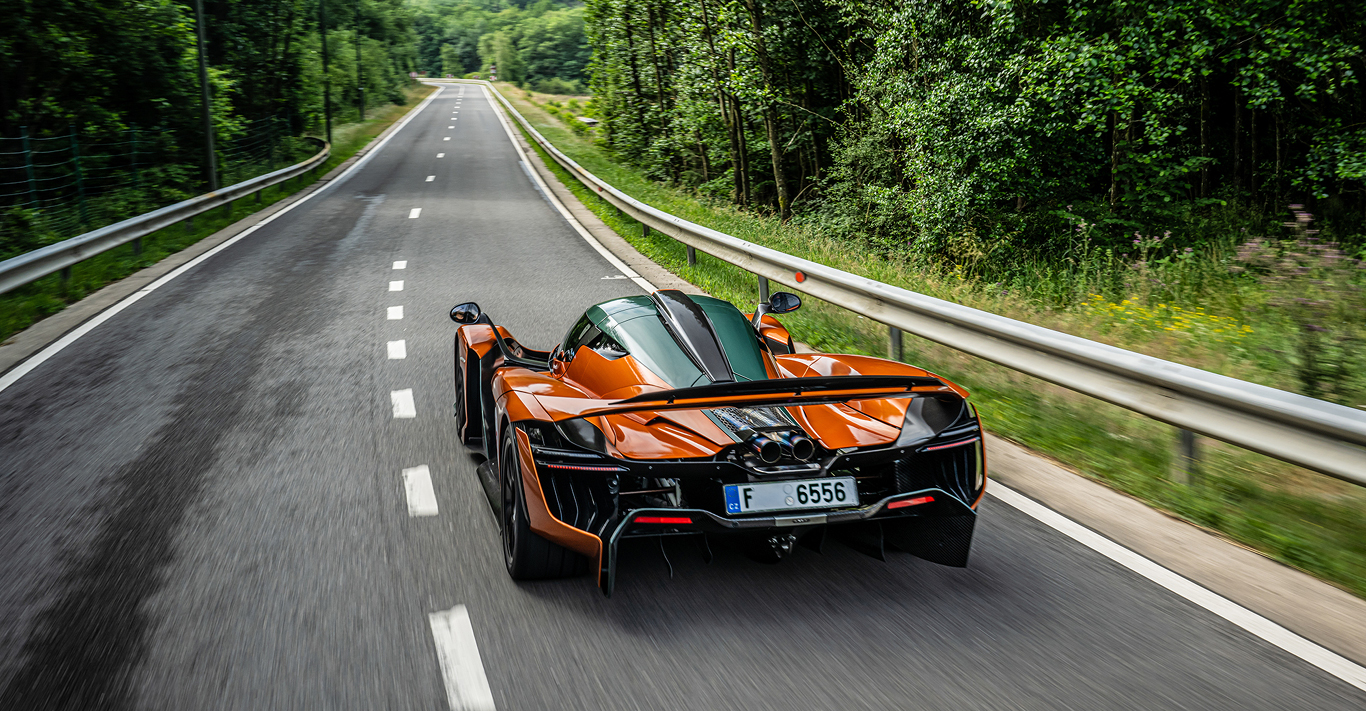WORDS
Amy Miles
Maeving is an electric motorcycle company based in Coventry, England, with some of the country’s most experienced bike engineers at its heart. In 2021, the company’s first production run of the “RM1” – a lightweight motorcycle with a 45mph top speed and maximum range of 80 miles – sold out almost immediately. Here, co-founder Will Stirrup explains how it all came together.
What is your background?
So, I met my co-founder Seb Inglis-Jones when we were both studying at the University of Durham. We became close friends and bonded over the fact we both care enormously about the climate crisis, and eventually realised we wanted to start a business together. After we graduated, we went off to get formal commercial training before doing our own thing, and at the end of 2017, we felt we were ready to start a business.
And what inspired you to create electric motorcycles?
Well, in 2017, it was about a year after the Paris Climate Accord, and we both felt a real sense of impending climate doom – the data was just getting worse. We realised that we weren’t going to kind of have this world-saving business idea while working 100-hour weeks, stuck in offices. So we both quit our jobs and went on the hunt full time to find this idea.
And you don’t have to look very hard to see that transportation is the biggest contributor to greenhouse gas emissions in many countries, such as the USA and UK. Electrification is an obvious way to help with this problem, because not only does it reduce the use of internal combustion engine vehicles but it’s one of the solutions with the smallest opportunity cost, because electric vehicles, in some instances, are better than their petrol counterparts.
In our research, we found that China has one of the highest electric vehicle adoption rates in the world. To put it into context, less than 300 two-wheeled EVs were sold in the UK in 2017, whereas China was at about 20 million. We realised the reason was that the motorcycles and mopeds offered in China all have removable batteries, whereas the ones that had come out over here, like the Harley-Davidson Livewire and the Zero didn’t. So that was the beginning of it.
How did you go about designing and building the bikes?
We didn’t just want to import the existing motorcycles from China, and since neither I nor Seb are engineers, the most important thing was to find someone who could head up the engineering team. We hired Graeme Gilbert, former head of product at Triumph, who is responsible for creating some of the most iconic British motorcycles. Then we gathered a team of 16 people, which isn’t massive for a motorcycle engineering team, but pretty much all of them have got 15 to 25 years of experience.
In terms of design, we needed it to be a fairly lightweight vehicle to optimise it for range – so we’re at about 111 kilos, versus a normal motorcycle, which is at least 160 kilos. We also wanted to bring more people into the motorcycle category, so in general, it was about making the bikes accessible. And we added things that would be ideal for use in a city, like GPS, USB charging and panniers. For the styling, we drew on café racers and really early flat trackers, because those are our favourite eras of motorcycling, visually.
And how long does charging take?
From flat to full is three and a half hours, using a normal three-pin plug, and if you’re just topping up, from 40 per cent to 90 per cent takes about 45 minutes.

You manufacture the bikes in Coventry, right?
The foundational reason for building the motorcycles in this country is for quality, but we’re not religious about it. Because if there’s a part that is better quality because it’s made somewhere else then we’re going to go with that. For example, Bosch makes the powertrain, the hub motor and ECU [engine control unit] in Germany, and we chose Bosch because it makes the best hub motors in the world. And Samsung makes the battery cells, because making a battery in the UK at this size, at volume, for a vaguely attainable price point isn’t possible at the moment. And Samsung makes the most energy-dense battery cell in the world, so we went with that. So we’ve ended up with 65 per cent of the components made in this country, which is by far the highest of any of our competitors, and all of the assembly is done here, as is the quality control, design and testing. So we’re as British-made an automotive company as currently exists.
Do you think people are becoming more open-minded about EVs in general?
From our research, the biggest barrier to electric vehicle adoption is “range anxiety”, which is driven by a lack of charging infrastructure. So, for as long as there is an infrastructure problem, you’re not going to have the kind of electric vehicle adoption that you need. When you build it all around an energy source that doesn’t rely on that, like a removable battery, which you can take out of the bike and charge from any plug socket, the main barrier to entry disappears.
And there are some motorcyclists who aren’t on board with electric yet because of its limitations, and to them, we say, you know, we’re not replacing your petrol touring bike for going across Europe, or your superbike for track days. This is a way to cut down your emissions easily, just by riding it to work during the week.
We sold out of our first production run, which launched in November, pretty much immediately. That was 100 bikes, and now we’ve got a waiting list of 2,351 people. So the response and interest in our bike has been really good, which is exciting.
What are your ambitions for Maeving in the future?
While our foundation is a desire to address the climate crisis, we know that in Britain we have an incredible heritage of motorcycle design and engineering. So our mission is to create the highest-quality and most desirable (but still attainable) electric motorcycles in the world, because it’s well within the power of the skills and resources we have here in this country.
The Maeving RM1 is available in single- or dual-battery options. Prices start at £4,995; maeving.com




